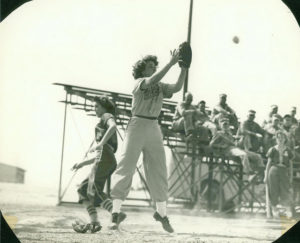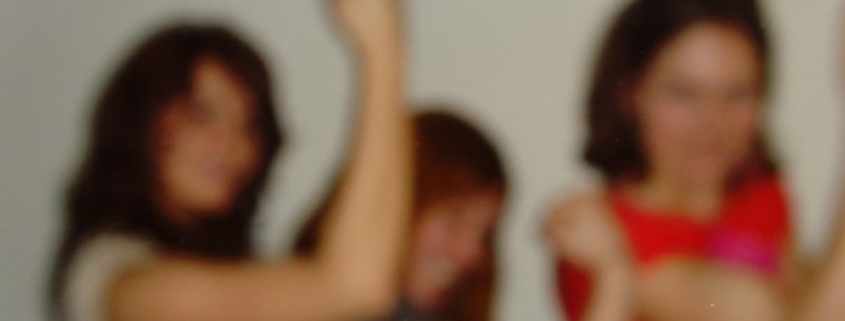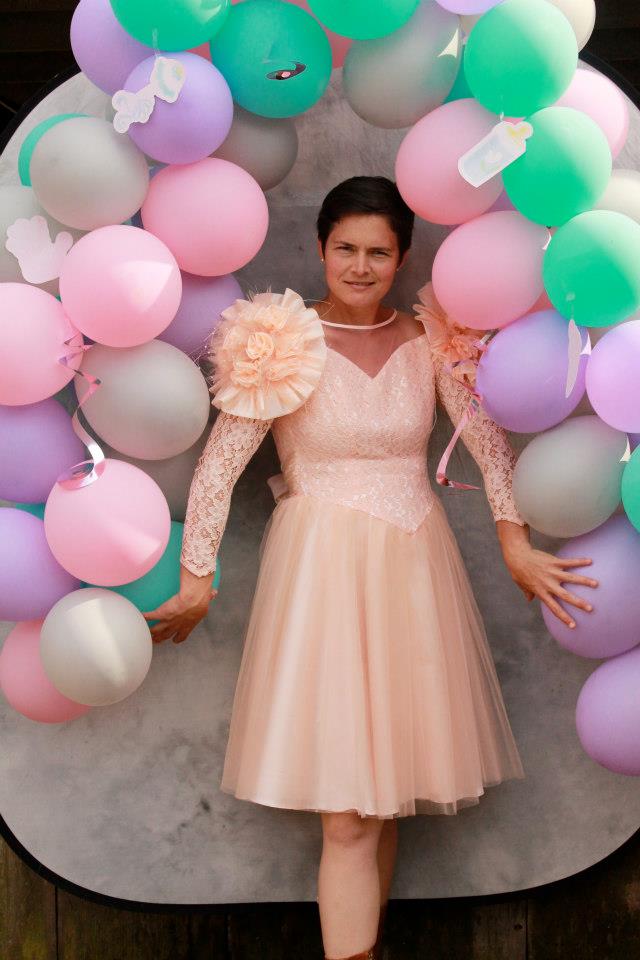Where the Women Are
How do I say this? I’ve been trying to say it for years. Wait, let me think. Yes. Years.
I can’t say it in conversation. I am never very articulate in speech. I get over-excited and miss my meaning. I swing hard but the ball flies past me, through my bat, snaps into the catcher’s mitt like a reproach. So I’ll try writing it here. What I mean to say is:
I want Hillary Clinton to be president of the United States.
I want it so bad that I do normal neurotic things, like lie awake at night, like follow the news obsessively waiting for polls to yield signs of hope. I pick up ten novels and put them down without finishing. I stare at my laptop trying to do schoolwork, but the blinking cursor is a taunt. Nothing comes. I start fights with my husband about the election, or about anything at all.
I want Hillary Clinton to be president, but more than that, I want to understand why.
* * *
I get a Hillary! bumper sticker for my car. I peel the paper from the adhesive and carry it to the driveway. I’m careful not to let the sticker touch itself and be folded and ruined. I decide to put it on the taller of our two cars, for maximum visibility, and that’s what I’m doing when my husband comes outside. He looks like he wants to tell me to stop. He crosses and uncrosses his arms. He rubs his eyebrow. I say, “What?” He says, “Nothing.” Then he says, “So… you’re just going to put that right on there?” I say yes. I press the sticker down so it’s exactly parallel with the back window. I smooth the edges to get rid of bubbles.
I tell my husband, “This is important for our daughters.” But the truth is, I want it for me. My desire to see Hillary Clinton in the Oval Office has little to do with policy or her potential statesmanship. If it were policy that thrilled me, Bernie Sanders would have my heart. Hillary has been a hawk and a fast friend to Wall Street. The more I think about it, I realize that the yearning I feel is old—it is one of the earliest desires in my memory. It might have been born with me into the world.
* * *
My four-year-old daughter sighs and says, whenever I wear a dress someone loves me.
* * *

From the Walter Callaway Collection (COLL/3868), Marine Corps Archives & Special Collections
The movie A League of Their Own came out when I was in grade school. This is the Penny Marshall film about the Women’s Baseball League formed during WWII as a placeholder for men’s baseball while players fought overseas. Actors Geena Davis and Lori Petty play sisters who get drafted to play for the Rockford Peaches. Seeing the movie had the effect of a spell on me. I begged my parents for ticket money and rides to the theater so I could go watch it again and again. I sat in the front row, so close to the screen that the women on it loomed like giants and the action was blurry and hard to follow. Trying to take it all in, I tilted my head so far back that I felt my neck pinch. I ignored the little pain. I loved the film so much that I wanted to get inside it. Why? Partly because I think baseball is beautiful. But I know now that I had also never seen so many women in a movie. They were everywhere, whole baseball teams of them, powerful and smart and funny. The few male characters were like little asides.
* * *
My daughter asks, “What’s the difference between men and women?” My husband tells her that usually men have penises and women have vaginas. My daughter says, “Okay. But we both like ketchup.”

Photo credit: Mary Birnbaum Drawing credit: her daughter
Our language evolves if a woman is elected. Sometimes big lexical changes rattle people. The idea is so disturbing that it causes pundits to scoff: Madam President. They cannot contain their derision. When the polls indicate a close race, they sneer the update: Madame President. First Husband, they chuckle, significantly—as if to suggest that Bill Clinton will be cuckholded by the office of the presidency, that he will be unmanned by his wife in the very place where he betrayed her. But the pundits also tug at their collars, which have suddenly grown very tight. They try and remain affable, but… is it hot in here? They sweat nervously as the patriarchy is perforated.
What I want to say to my daughter but do not say is that gender is not categories but conversation. But my child, like lots of people, needs taxonomy and organization. She likes us to explain the world so that she can complete the rubric of existence in her mind. What I want to say and do not say is, everything is in flux. I want to say it because it is my favorite idea: that the real action is on the margins of language and identity. I feel like I spend my life trying to show my kid that she is no single thing, that she can be all things. How do I convince her of this, when I hardly understand it for myself?
* * *
GEENA DAVIS: My theory is that since all anybody has seen, when they are growing up, is this big imbalance—that the movies that they’ve watched are about, let’s say, 5 to 1, as far as female presence is concerned—that’s what starts to look normal. And let’s think about – in different segments of society, 17 percent of cardiac surgeons are women; 17 percent of tenured professors are women. It just goes on and on. And isn’t that strange that that’s also the percentage of women in crowd scenes in movies? What if we’re actually training people to see that ratio as normal so that when you’re an adult, you don’t notice?
JACKI LYDEN (NPR Radio host): I wonder what the impact is of all of this lack of female representation.
GEENA DAVIS: We just heard a fascinating and disturbing study, where they looked at the ratio of men and women in groups. And they found that if there’s 17 percent women, the men in the group think it’s 50-50. And if there’s 33 percent women, the men perceive that as there being more women in the room than men.
LYDEN: Oh, my goodness.
* * *
My husband calls me from work. He sounds agitated. He tells me that he accidentally left his lights on in the office parking lot and that a concerned co-worker, not knowing whose car it was, took a picture of it and brought it to the office secretary. The secretary attached the photo to a company-wide email, saying that the owner of the car in the picture left their lights on. I can imagine him rubbing his eyebrow as he tells me this. He rubs his eyebrow when he’s agitated or anxious. Soon he will have but one eyebrow. He says, “The tail lights were hardly visible in the picture. The focal point was that Hillary sticker.”
“Okay,” I say.
“Yeah,” he says. And he says that he feels like people in the office who recognized his car are treating him differently now.
“Huh,” I say. “Well. Huh.” In the silence, the silence and the uneven breathing of the good man I married, I see his shame. I see him squirming at his desk, like he’s been caught at the company urinal in women’s underwear. I can hear the tension in this moment, of him resisting against something, without knowing he resists.
* * *

Photo credit: Mary Birnbaum
People say you can’t vote for her just because she’s a woman. Would you have voted for Carly Fiorina? I would not have voted for Fiorina, but part of me would have regretted it—the part rooted in that early desire to see myself reflected in the world. Hillary is not some mirror for me because we have similar genitalia. I don’t know what it feels like to be the woman Hillary Clinton. I barely know what kind of woman I am. Sometimes my body feels like a funny rubber husk. We were on a long drive home from a wedding right around the time Caitlyn Jenner was in the news a lot and my brother-in-law asked me, “Mary, have you ever wanted to be a man?” I laughed and said no. What I wanted to say but did not say is, I want power. I always have. Whatever Hillary Clinton is, she intervenes in a baton-pass of power, she grabs at something men don’t want to hand over.
Electing a woman is revolutionary in the sense of public upheaval, but also in the subtler, private ripples of discomfort it causes. Trump will have gotten close to the presidency not only because there are disaffected people in this country, but also because a substantial number of Americans would rather have him than a female. Many of these same people had to endure a person of color in that sacred office for eight years. The idea that Barack Obama might be followed by a woman (a woman!) is more than some Americans can bear.
I harbor no illusions about what the woman president will do to cure misogyny. We can take instruction from what Obama’s presidency did to “end racism.” White supremacy has rarely been as strident; the Klan is out sans bedsheets, blinking like happy moles in the daylight. When Hillary takes power, she will elicit a fierce new legion of haters. I am afraid of the oncoming ugliness, but is there such a thing as a hopeful, pragmatic fear? If America was willfully blind to white nationalism until recently, we might benefit from a similar, painful outing of dormant (and active), literal and figurative pussy grabbers.
* * *
I am one of three sisters and the mother of two daughters; I went to an all-women’s college; most of my close friends are humans who identify as women. Very few of the aforementioned are willing to take any shit. I was driving home from work when I heard the Geena Davis interview. Since I heard it, my world has been more askew. The gaps are often all I see. Though I know we comprise half the population, I can’t help feeling like one of many ghosts, an uncanny presence, in the world but also out of it.
Our national sight and sound is flooded with men, lots of them very good people. That souls who are not white and male are under-represented is not news. This is a lacunae verified through statistics, but we also feel it in our bones.
I want Hillary Clinton to be president because, in my mind, then I become undeniable. She stirs an important insurrection by daring to be seen—it is a riot under the skin, and on the airwaves and bedrooms and ballrooms and ball fields. For me this is very personal. What I want to say is, in this exceptional time, in this subversion of language and image, I feel a shudder of hope that the woman president makes me real.
Mary Birnbaum is editor of Lunch Ticket’s Diana Woods Memorial Prize in Nonfiction. She holds an MFA from Antioch. She has contributed to Lunch Ticket and The Week. Mary was the 2018 recipient of Disquiet International’s Nonfiction Fellowship and a finalist for Chattahoochee Review’s Lamar York Prize. She resides in Vista, California with her daughters and husband. If you like, you can find her on Twitter @ailishbirnbaum






